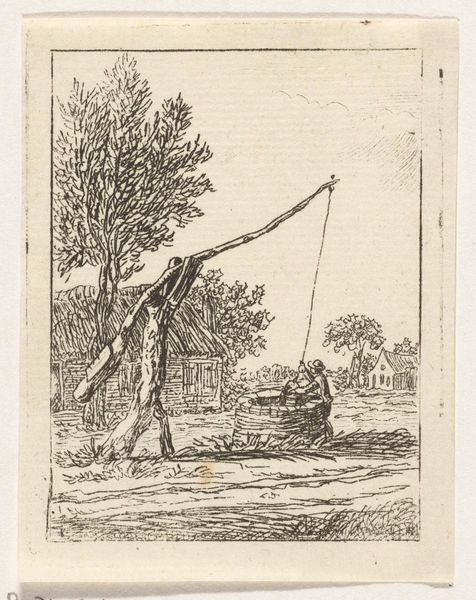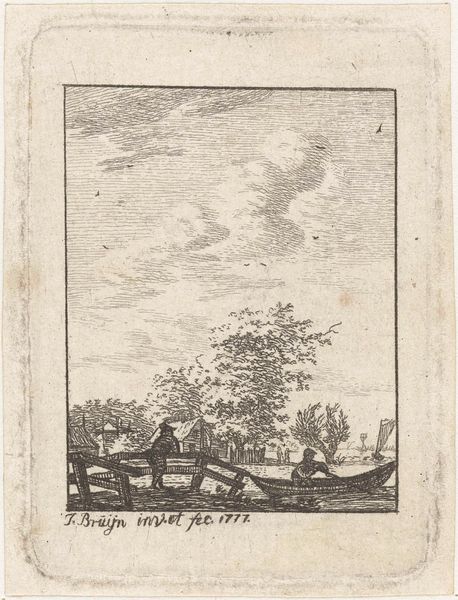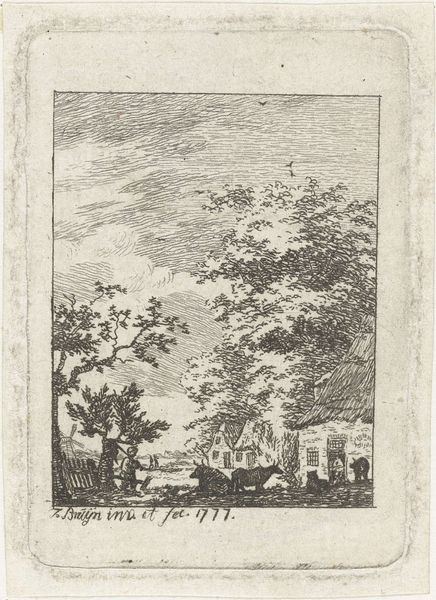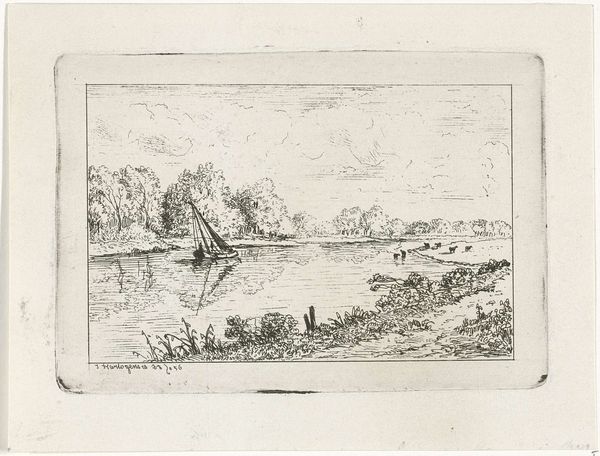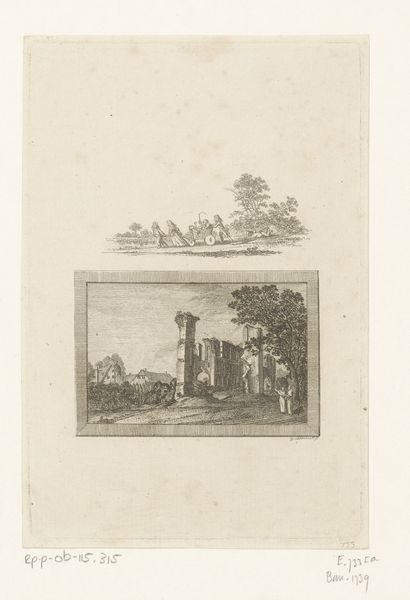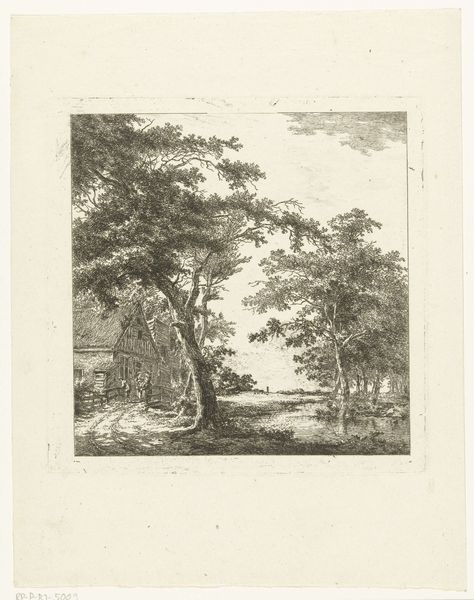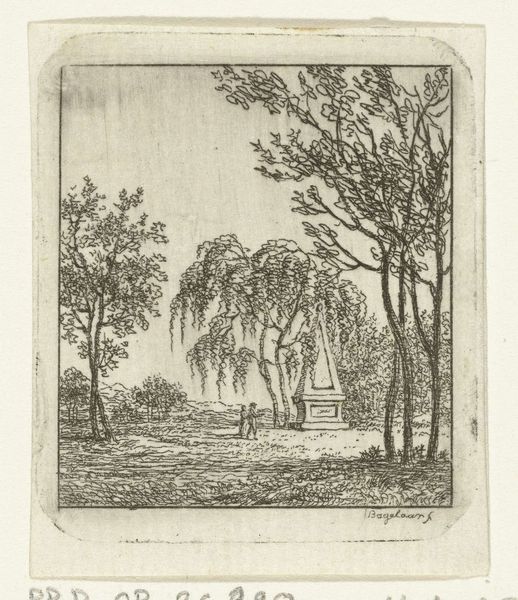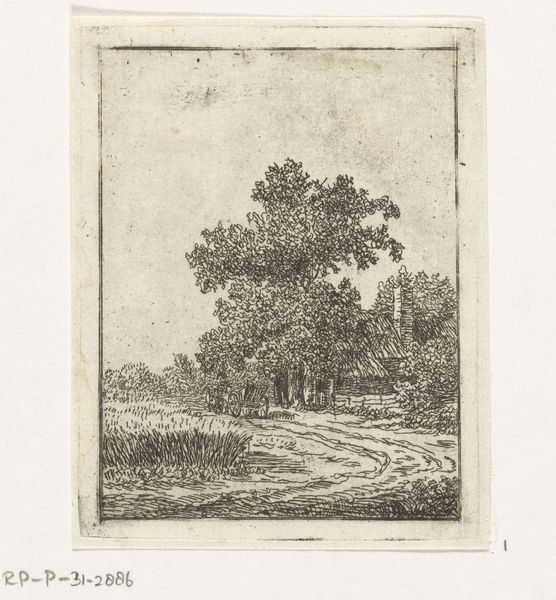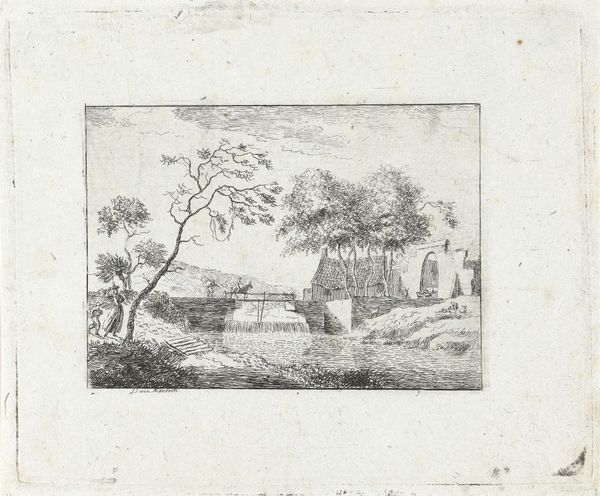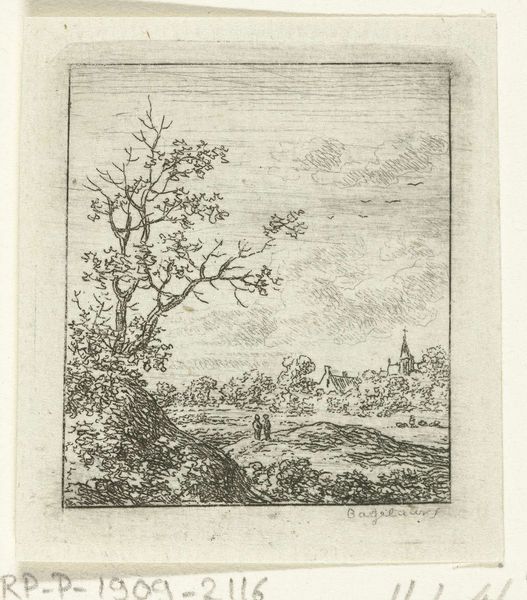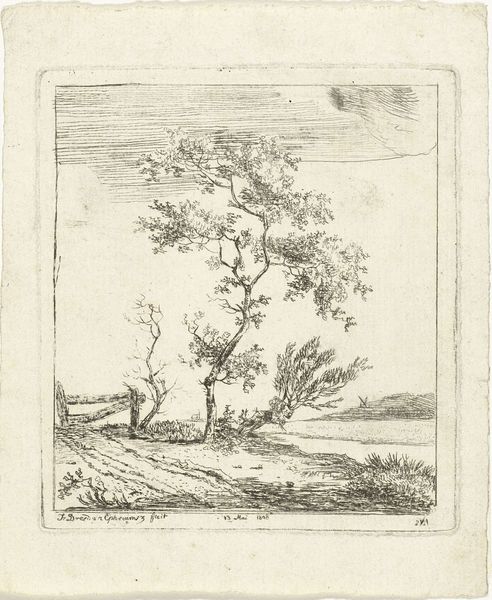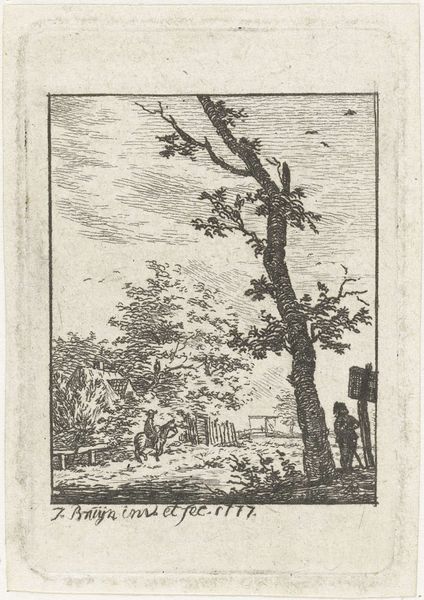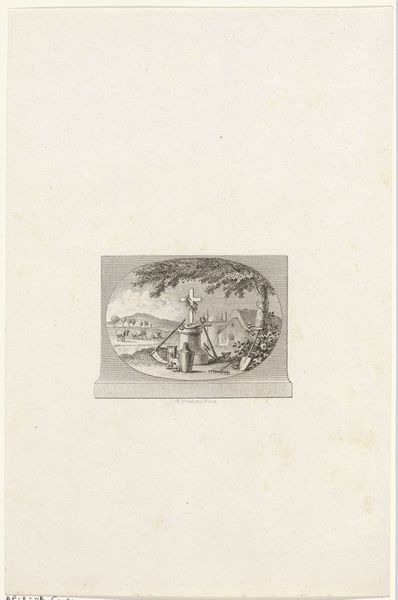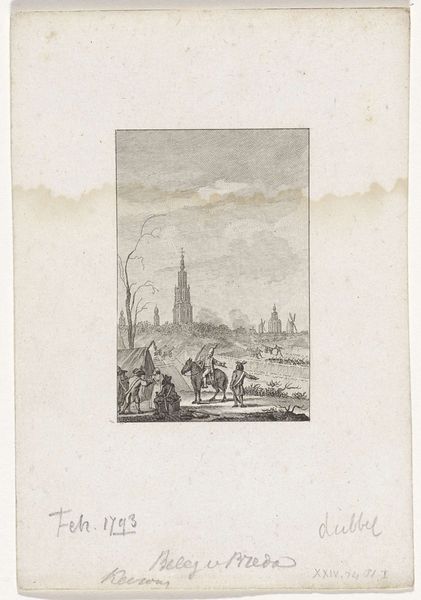
Dimensions: height 82 mm, width 63 mm
Copyright: Rijks Museum: Open Domain
This print of a well with a sweep was created by Anthonie van den Bos in the late 18th or early 19th century. He used etching, a printmaking process that democratized image production. The magic of etching is in the line, created by drawing into a wax-coated metal plate, which is then submerged in acid. The acid bites into the exposed lines, creating grooves that hold ink. The plate is wiped clean, forcing ink into the grooves. Finally, damp paper is pressed against the plate, transferring the image. The resulting print is a mirror image of the original drawing, capturing the scene with stark simplicity. The linear quality suits the rural subject; a reminder of the labor required to draw water. The final print is a product of many stages of handwork: drawing, preparing the plate, inking and printing. This layering of processes connects it to both the world of art and the world of work.
Comments
No comments
Be the first to comment and join the conversation on the ultimate creative platform.
